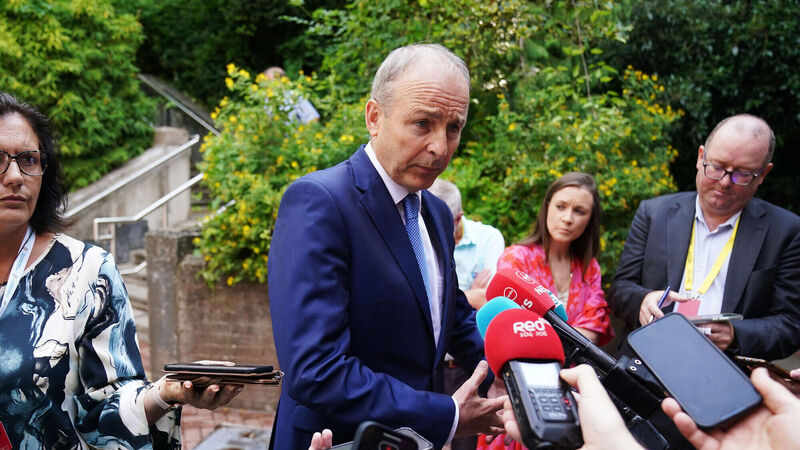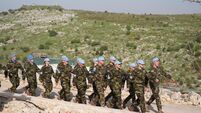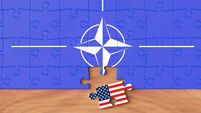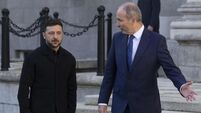Elaine Loughlin: International security is something Ireland needs to discuss

Tanaiste Micheal Martin speaking to reporters after the opening session of the Consultative Forum on International Security Policy at UCC on Thursday. Picture: Brian Lawless/PA
What, if anything, did we learn from the first day of the Government's Consultative Forum on International Security Policy?
Protesters who were hauled out by gardaí and accused of trying to shut down the discussion may have been the talking point of the day, but international security is something Ireland needs to discuss.
















